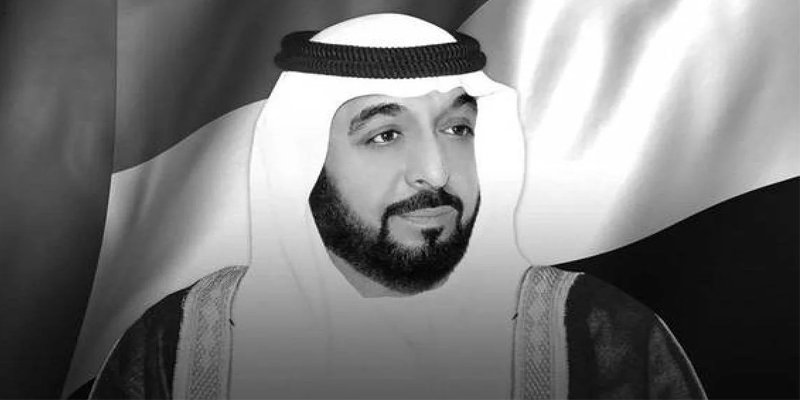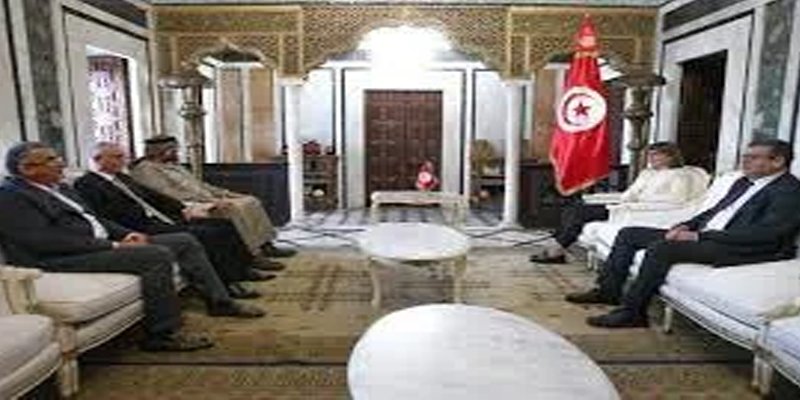- Feb 12, 2024
The reality of foreign investment in the Emirates
Introduction
Foreign investment is one of the factors that reflects the attractiveness of the business climate in a country to foreign investors, and even local investors. The United Arab Emirates is distinguished, according to reports by the World Bank and the United Nations, by being one of the most suitable and attractive Arab countries for business. In the article below we review the reality of foreign investments in the Emirates, The most important elements that enabled it to reach this advanced rank are based on investment data issued by the official state authority. Today, the United Arab Emirates is witnessing significant and continuous growth in the volume and value of foreign investments, including a diverse combination of fiscal and legal incentives, as well as providing all resources and facilities to support existing investments, thanks to the generation and attraction of new investments. Studies show that foreign investment in the Emirates is mostly distributed between direct investment and investment related to deposits and loans, and that the sectors that benefit most from this are financial activities, real estate and commercial activities, while portfolio investment is primarily linked to financial and insurance activities, as is the case with other foreign investments. .
Overview of foreign investment
Definition of foreign investment
There is no unified definition of foreign investment because it differs from the point of view of each researcher, just as it differs from one science to another. Before discussing the concept of foreign investment, the concept of investment must be defined:
The concept of investing financially
Investment is defined from the point of view of management as dealing with funds to obtain profits, by giving them away in a specific time plan and for a specific period of time with the aim of obtaining future financial flows that compensate for the current value of the invested funds and compensation for the risk factor corresponding to the future.
The concept of investment accounting
The investment represents “the total property and material and moral values of the institution/purchased” by the institution. The goal is not to sell or transfer them, but to use them as permanent means of exploitation according to their useful life.
The concept of foreign investment according to the Organization for Economic Cooperation and Development
Every natural person, every public or private institution, every government, every group of natural persons who have a relationship with each other, every group of institutions that have a legal personality and are related to each other, is a foreign direct investor if he has a direct investment institution, which also means A branch or subsidiary company that carries out investment operations in a country other than the country in which the foreign settler resides.
It is also defined as every investment made outside its home country in search of a host country, and in pursuit of achieving a set of economic, financial and political goals, whether for a temporary goal or for a specific period for long-term generations.
It is also known that these investments are owned and managed by the foreign investor, either because of his full ownership of them or his ownership of a share of them that guarantees him the right of management.
Advantages of foreign investment
The benefits and advantages that the country receiving these foreign investments can benefit from are:
Foreign investment and technology transfer
Technology in its broad sense is not limited only to the series of technical production processes. Rather, it extends to include organizational, administrative and marketing skills and capabilities, and the technology transfer process may take place through various means such as selling technology, licensing agreements, and technical assistance contracts. There are some studies indicating that multinational companies are considered an important means of transferring technology, whether directly or indirectly. The speed of technology transfer depends on the investment pattern, the absorptive capacity of national workers, in addition to the relationship between imported technology, profitability, and the suitability of products in their final form for the market.
Foreign investment and improving the efficiency of using the host country’s resources
The technological superiority of foreign companies investing in host countries has increased the efficiency of local companies through licensing and technical assistance. There is a consensus on the importance of foreign investment, which is considered the only way for technology to pass through to developing countries. This investment also increases the productive and competitive capabilities of local companies, especially in the manufacturing sector.
Potential impacts on employment
Many studies indicate the important role played by foreign investments in raising employment levels through the direct job opportunities provided by the flow of foreign capital into the host country, in addition to the job opportunities that are achieved as a result of supporting backward and forward links with local industries and raising levels of productivity in society. Changing the pattern of income distribution in favor of groups with a high tendency to save and invest. It should be noted that the results and effects on employment depend on the practices of foreign invested companies, as well as the regulatory environment in which they operate, as well as the level and skill of the workforce in the host country.
Foreign investment in the United Arab Emirates
The UAE has emerged as a global hub for foreign investment, attracting capital from all over the world. With its strategic location, business-friendly policies and strong economic infrastructure, the UAE offers a lucrative landscape for investors looking for growth opportunities. However, behind the attractive facade lies a complex truth that requires closer examination. The United Arab Emirates has been characterized by its difficult climate and terrain throughout history, but it has adopted a clearly defined strategy based on radical change and innovation, and exploiting all of its rich natural potential, such as oil, to establish a strong economy independent of the revenues of this sector, to other basic and supportive sectors within the framework of Economic diversification, which in itself was both a goal and a means of progress at the same time. The United Arab Emirates realized that this would only be possible by seeking the help of a foreign partner that would allow it to obtain modern technology and effective management methods, so it decided to invest its money and oil revenues in bringing in highly qualified and skilled people, to train, form, and contribute to the development of local capabilities. All of this allowed the development of the Emirates. Economically and commercially, and its expansion in many regions and sectors, which necessitated obtaining new capital in which there would be mutual benefit between the owner of the money and the country, and thus it began attracting foreign capital and investments, based on a strong and flexible legislative system, and a stimulating infrastructure, until it was able to Reach the highest global growth rates and Arab leadership in the volume of foreign investments attracted.
Complexities of foreign investments in the United Arab Emirates
Historical context
To understand the current situation of foreign investments in the UAE, it is necessary to delve into its historical development. Historically dependent on oil revenues, the UAE has embarked on a diversification journey with the aim of reducing its dependence on hydrocarbons and promoting a knowledge-based economy. This strategic shift has paved the way for the development of sectors such as tourism, real estate, finance and technology, attracting foreign investors keen to benefit from the country’s growth trajectory.
Political Framework
Central to the UAE’s attractiveness to foreign investors is its favorable political framework. The government has implemented various initiatives to facilitate foreign investments, including establishing free zones, providing tax incentives, simplified regulatory procedures, and 100% foreign ownership in some sectors. In addition, the UAE has signed several bilateral investment treaties (BITs) and double taxation avoidance agreements (DTAs), providing further assurances to investors in terms of legal protection and tax optimization.
Main sectors
Foreign investments in the UAE span across a variety of sectors, each presenting unique opportunities and challenges. The real estate sector, embodied by iconic projects such as Burj Khalifa and Palm Jumeirah, has historically been a magnet for foreign capital, driven by the allure of high returns and rapid appreciation. Likewise, the tourism and hospitality sector has witnessed significant foreign investment, fueled by the UAE’s position as a global tourism destination. Moreover, the financial services sector, especially in Dubai and Abu Dhabi, has emerged as a regional financial hub, attracting investments from leading multinational companies and financial institutions.
Growth opportunities for foreign investments in the UAE
Amid the challenges, the UAE offers abundant opportunities for foreign investors keen to benefit from its dynamic economy. Ongoing diversification efforts, along with ambitious mega projects such as Expo 2020 Dubai and Vision 2030, underscore the country’s commitment to sustainable growth and innovation. Moreover, the UAE’s strategic location as a gateway between East and West places it in a positive position for trade and investment flows, especially with emerging markets in Asia and Africa.
Statistics about the reality of foreign investment in the Emirates
According to the Global Foreign Direct Investment Report for 2023 issued by the United Nations Conference on Trade and Development (UNCTAD), the value of inward foreign direct investment in 2022 to the UAE amounted to 22.737 billion US dollars (83.5 billion UAE dirhams), an increase from 2021 by 2.07 billion dollars ( 7.6 billion dirhams) with a growth rate of 10%, ranking 16th globally in inward foreign direct investment flows in 2022.
The UAE also ranked first in the West Asia region, accounting for 47.1% of the total inflows to the region, amounting to $48.3 billion. In addition, it also ranks first in the Middle East and North Africa region, accounting for about 32.4% of the total inward foreign direct investment flows to this region, amounting to $70.2 billion.
Today, the UAE offers many incentives to investors, supports entrepreneurship, and sets incentives to attract foreign direct investments, such as allowing investors of different nationalities to establish and fully own companies in the UAE, and in all economic sectors, according to the lists issued by the local authorities, with the exception of a number of sectors with Strategic impact, as it can be fully owned after the approval of the authorities concerned with regulating these sectors with strategic impact.
The Ministry of Economy has launched many initiatives that contribute to attracting foreign direct investments and international companies, including the NextGen FDI initiative, which is an initiative in partnership with a number of entities and institutions from the government and private sectors, aiming to attract digital companies and introduce the economic and investment side in the UAE. Enabling establishment processes to accelerate licensing for advanced technology companies seeking to move to the UAE.
Promising economic sectors in the UAE
The UAE is working to stimulate new economic sectors in the knowledge economy and the digital economy. The following are the promising economic sectors according to the UAE Ministry of Economy:
1- Financial technology.
2- E-commerce.
3- Agricultural technology.
4- Health care.
5- Education.
6- Tourism.
7- Space.
8- Logistics services.
9- Communications and information technology.
10- Manufacturing.
11- Medical tourism.
12- Renewable energy.
13- Media and entertainment.
14- Creative industries.
15- Games.
16- Smart cities.
The legal form of foreign direct investment projects
The legal form of foreign direct investment projects takes one of the following legal forms:
1- Public joint stock companies.
2- Private joint stock companies.
3- Limited liability companies.
4- Simple recommendation companies.
5- Solidarity companies.
Licensing terms and procedures
The licensing authority in the relevant emirate and the competent authority shall determine, each according to its jurisdiction, the conditions and procedures for establishing and licensing foreign direct investment projects included in the positive list, and the required documents in accordance with the provisions of the Foreign Investment Law, the applicable federal legislation, and the local laws in force in the concerned emirate, so that those conditions and procedures are available. To view it.
Conclusion
In conclusion, foreign investments in the UAE represent a compelling opportunity for investors seeking exposure to a dynamic and rapidly developing market. However, dealing with the complexities of the local business environment requires careful consideration of opportunities, risks and regulatory frameworks. By understanding the reality of foreign investments in the UAE and leveraging strategic insights, investors can position themselves for success in this dynamic landscape.





